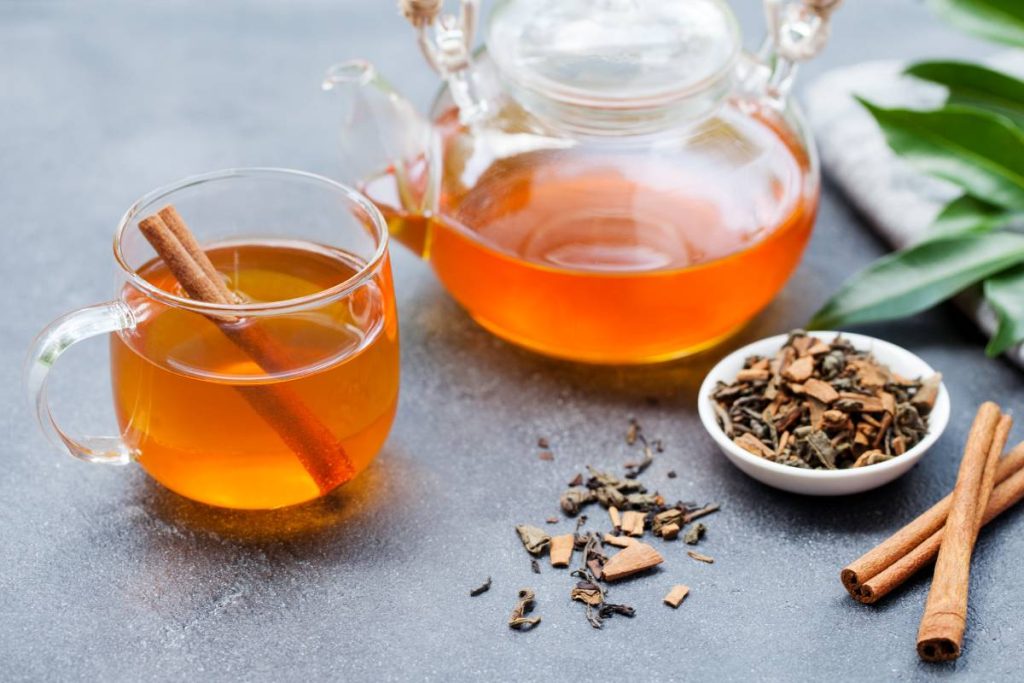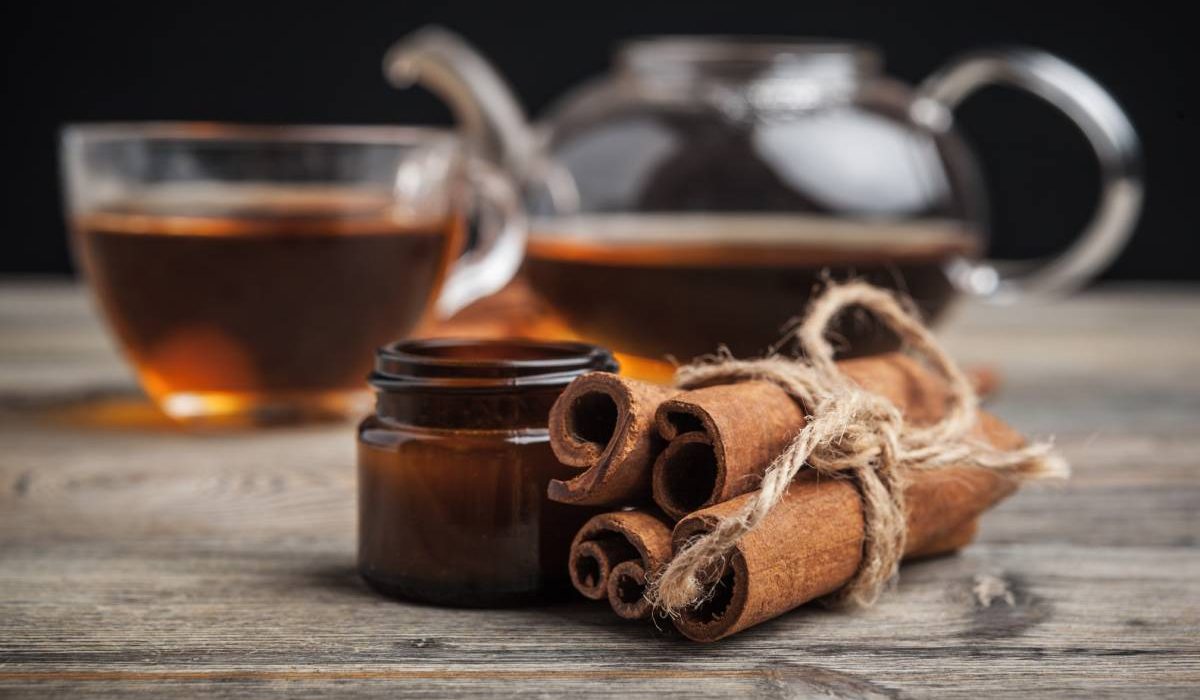Cinnamon tea is not just a tasty beverage; it also offers a range of health advantages. While it’s generally safe in moderation, it’s important to be aware of some potential risks.
So, today, in this article, we are going to talk about what are the benefits of cinnamon tea, what are the risks associated with cinnamon tea, and the recommended intake you should drink cinnamon tea. Let’s get into it
What are the Benefits of Cinnamon Tea?
So, what are the benefits of Cinnamon tea? Why we are recommended to drink it? We have gathered answers and benefits for you.
Rich in Antioxidants
Cinnamon tea is packed with antioxidants, which play a crucial role in combating free radicals linked to cancer, heart disease, and diabetes. Cinnamon, specifically, provides a good dose of polyphenol antioxidants and has been shown to enhance the body’s overall antioxidant capacity.
Heart Health Booster
Studies suggest that cinnamon may contribute to heart health by relaxing blood vessels, reducing blood pressure, increasing HDL (good) cholesterol, promoting healthy blood circulation, and lowering blood triglycerides and total cholesterol. While it won’t cure heart disease, incorporating cinnamon into a healthy lifestyle could reduce the risk of certain heart conditions.

Skin Benefits
Cinnamon aids in collagen production, a vital protein for skin elasticity, hydration, and a plump appearance. Its anti-inflammatory and antibacterial properties make it a potential remedy for acne. However, more research is needed to determine the effectiveness of topical treatments or oral supplements.
Hair Growth Support
While it won’t magically turn you into Rapunzel, cinnamon may promote hair growth. Studies suggest that cinnamon oil, with its cinnamaldehyde content, can enhance blood flow to hair follicles. Additionally, a flavonoid called procyanidin in cinnamon is associated with hair growth. Anecdotal evidence also hints at cinnamon’s potential to improve dandruff, but further research is required for confirmation.
Potential Improvement in Diabetes Symptoms
Cinnamon may play a role in lowering blood sugar levels and enhancing insulin sensitivity, according to small studies. A review in 2015 observed positive effects on serum glucose, triglycerides, low-density lipoprotein cholesterol, and total cholesterol in individuals with type 2 diabetes who consumed up to 6 grams of cinnamon daily for 40 days to 4 months. However, further research on the specific benefits of cinnamon tea for diabetes symptoms is needed.
Weight Loss Support
Cinnamon is often considered a natural aid for weight loss. Some studies indicate that it may contribute to a reduction in waist circumference and fat mass while increasing muscle mass. However, more research is required to determine if the amounts typically found in cinnamon tea can produce similar effects.
Anti-inflammatory Properties
Consumption of cinnamon may help alleviate joint swelling and reduce inflammation markers, potentially benefiting conditions like asthma, ulcerative colitis, Crohn’s disease, rheumatoid arthritis, cancer, and heart disease. While cinnamon isn’t a cure-all, its effectiveness on its own requires further scientific exploration.

Relief from Cold Symptoms
While cinnamon won’t cure a cold or flu, its antioxidant properties in cinnamon tea could potentially boost the immune system, theoretically aiding in a quicker recovery. However, scientific evidence supporting this claim is currently lacking. Drinking cinnamon tea with honey during illness can offer comfort, though its efficacy in expediting recovery is uncertain.
Soothing Stomach Issues
Cinnamon’s phenolic compound, catechin, may have positive effects on symptoms related to inflammatory bowel disease (IBD), including nausea, diarrhoea, indigestion, and stomach cramps, as suggested by a 2017 study. More research on the effectiveness of cinnamon tea in addressing stomach issues is needed.
Antibacterial Properties
Cinnamon contains bioactive phytochemicals, such as cinnamaldehyde and eugenol, which exhibit antibacterial properties. A 2018 study demonstrated that cinnamon extracts and essential oils could damage bacterial cell membranes, slow motility, and decrease cell division, showcasing its potential in fending off bacteria.
Combatting Fungal Infections
Cinnamon extract has proven antifungal properties, commonly used by some for self-care against foot or skin fungus. It remains uncertain whether drinking cinnamon tea yields the same benefits as extracts. Notably, cinnamon may be effective for minor fungal infections, but if the problem persists beyond a few days, consulting a doctor is advisable.
Potential Anticancer Properties
Recognised for its antimicrobial, antioxidant, and anticancer activities, cinnamon extract has demonstrated the ability to induce cancer cell death and inhibit the spread of cancer cells. Despite these promising findings, navigating cancer is intricate, and consulting with a healthcare professional is essential before considering cinnamon as part of a treatment plan.
Cognitive Benefits
Numerous animal studies suggest that cinnamon can positively impact brain function. A 2021 study revealed that cinnamon extract aids in memory recovery after a traumatic brain injury, while a found that cinnamon supports new memory formation and enhances the learning process.
Alleviating Period and PMS Symptoms
Many individuals experiencing menstruation report that cinnamon tea can alleviate cramps and premenstrual syndrome (PMS), and there is scientific support for this claim. In a 2018 study, participants taking 3 grams of cinnamon daily during the first three days of their menstrual cycle experienced significantly less pain than those in the placebo group. However, it’s important to note that cinnamon may not be as effective as over-the-counter pain medications; a 2015 study found that while cinnamon provided better relief than a placebo, ibuprofen was more effective.

What are the Risks Associated with Cinnamon Tea?
1. Liver Damage: Cassia cinnamon, commonly known as regular cinnamon, contains coumarin. Excessive consumption of this compound has been linked to liver damage.
2. Oral Lesions: Individuals sensitive to cinnamon may experience oral ulcers or lesions, likely due to cinnamaldehyde, a compound in cinnamon known to trigger allergic reactions.
3. Low Blood Sugar: While cinnamon can aid in lowering blood sugar, excessive consumption may lead to low blood sugar levels.
4. Medication Interactions: Before incorporating cinnamon tea into your diet, consult a healthcare professional. Cinnamon has been known to interact with certain medications, particularly those used to treat liver conditions or diabetes.
What is the Recommended Intake of Cinnamon Tea?
- Many commercial teas use Cassia cinnamon, rich in coumarin. A teaspoon of ground cinnamon can contain 7 to 18 grams of coumarin.
- According to a previous study, a healthy intake of coumarin for a 130-pound person is around 5 mg daily. Therefore, even a teaspoon of Cassia cinnamon can surpass the daily limit.
- Some cinnamon tea brands may not specify coumarin amounts per serving. Choose reputable brands with clear dosage information on the packaging.
Final Thought
Imagine settling into a cosy bed, sipping on a comforting cup of cinnamon tea. The warmth and aroma envelop you, creating a tranquil atmosphere. However, please be assured that this relaxing experience isn’t disrupted by unwelcome guests like bed bugs. Take measures to keep your sleeping space bug-free, and continue enjoying the soothing moments with your cinnamon tea.
While cinnamon tea is a delightful and cost-effective beverage with potential health benefits, it’s essential to recognise that it’s not a universal remedy. Consult a healthcare professional before using it as a treatment.















